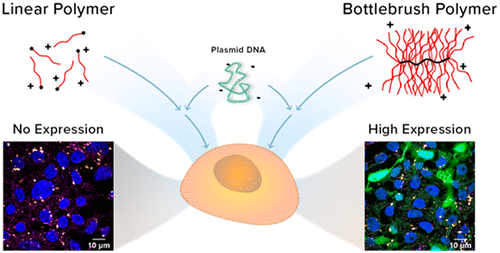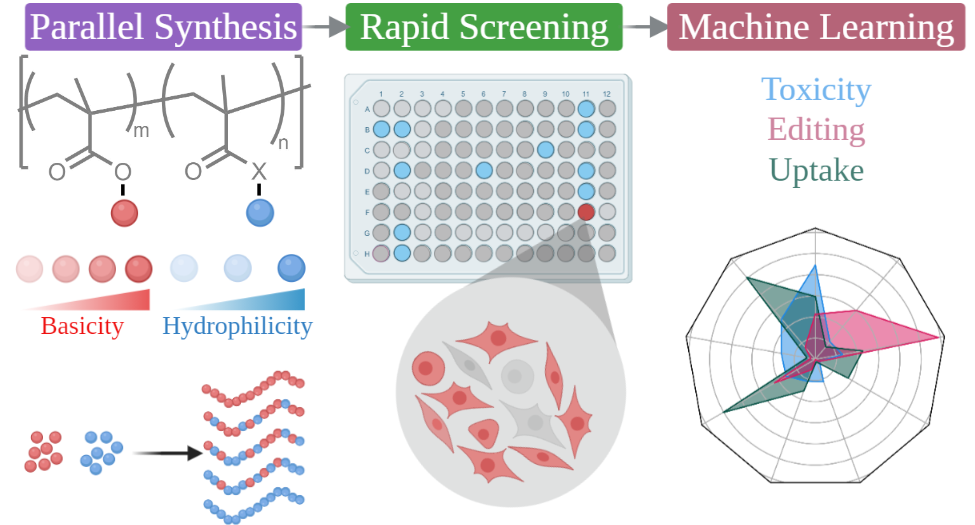Polymeric Vehicles for Nucleic Acid Delivery
In contrast to small molecule drugs that transiently target proteins rather than address the underlying cause of genetic diseases, gene therapeutics (anti-sense oligonucleotides, mRNA, pDNA, siRNA) modulate gene expression to achieve long-lived therapeutic effects. Additionally, genome editing technologies such as CRISPR/Cas9, prime editing, and base editing offer the possibility of permanent cures for genetic disorders. Therapeutic nucleic acids augment, delete or otherwise modify defective gene sequences, and are steadily winning approval for clinical use from regulatory agencies. Delivery vehicles must protect nucleic acids from degradation, minimize the risk of activating the immune system, and ultimately deliver these payloads to target cells safely and efficiently. The bulk of clinically approved gene therapeutics rely on engineered viral vectors that encode the requisite DNA sequences, but viral delivery is confronted with issues of cost, manufacturability, and safety. Lipid nanoparticles and physical methods of gene delivery have been developed but they are ill-suited for use in rugged environments where cold storage and specialized equipment may be unavailable.
Polymers are cost-effective and scalable replacements for viral vectors, offering a vast design space within which we realize targeted vehicular properties through deft optimization of chemical composition, polymer length, and architecture. Combinatorial design yields multifaceted polymer libraries by introducing small but systematic variations in design parameters to create molecules that vary widely in their interfacial properties and biological performance. Our lab will apply combinatorial design approaches to unravel the contributions of electrostatic and non-electrostatic contributions to polymer-mediated ribonucleoprotein delivery, a challenging and fragile class of nucleic acid payloads. We are particularly interested in probing the roles of polymer hydrophobicity, basicity, and microstructure in the design of polymer-RNP complexes that are not only highly efficacious across a range of cellular targets but are thermally resilient and retain their efficacy in challenging environments.









